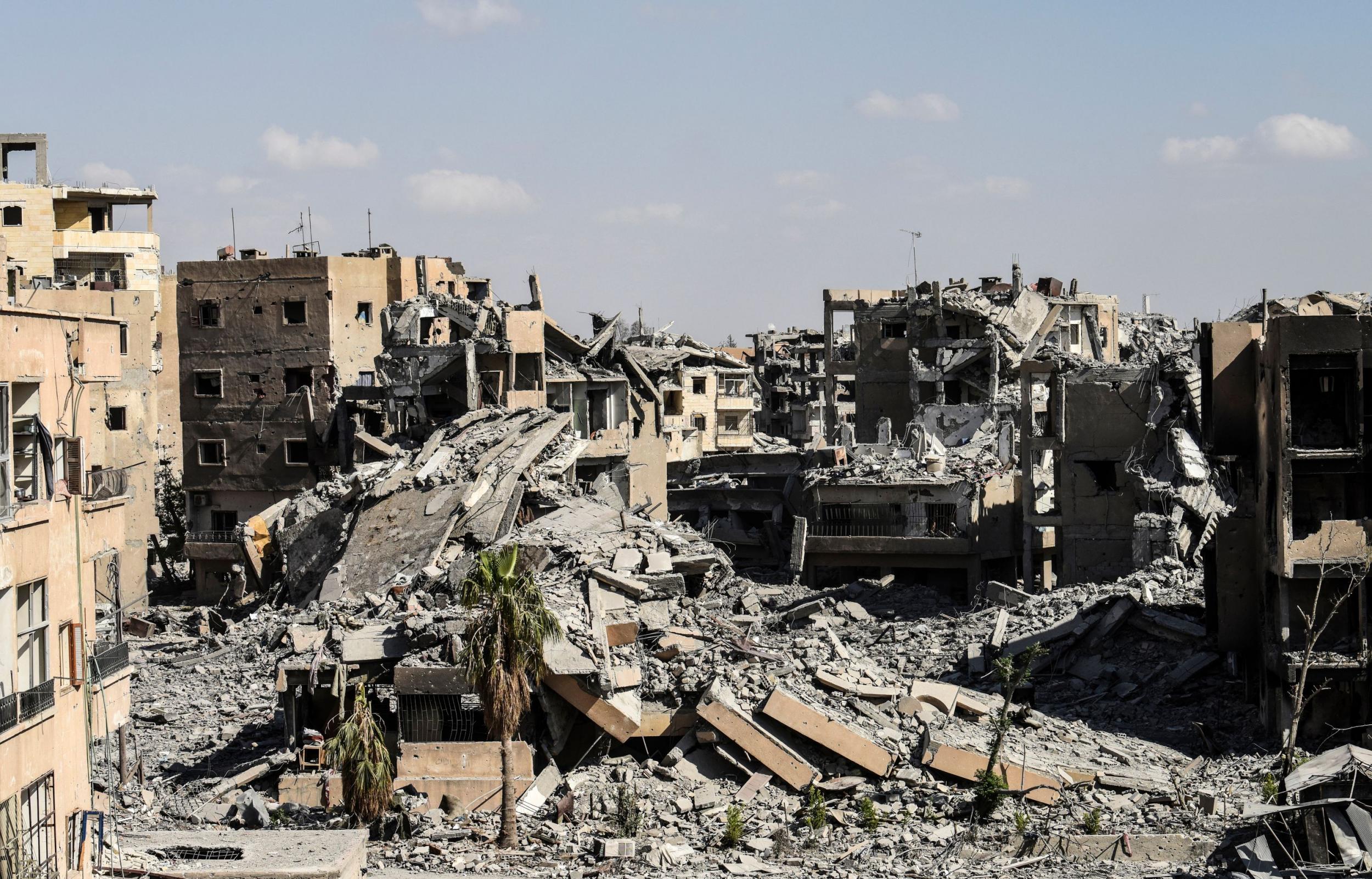US air strikes kill 18 civilians in Raqqa
Fight for Isis’ Syrian capital has reached its endgame but civilians continue to pay a high price

An air strike carried out by the US-led coalition against Isis has killed at least 18 civilians in the Syrian city of Raqqa, a monitor has said.
International coalition planes on Tuesday targeted water wells where civilians were getting water in the north of the city, killing at least 18 people, Rami Abdel Rahman, the director of the UK-based Syrian Observatory of Human Rights (SOHR) said in a statement. At least four children were among the dead.
Isis’ media channels made similar claims before the deaths were verified by SOHR on Wednesday.

The US-backed Syrian Democratic Forces (SDF), an alliance of mostly Kurdish and Arab fighters, has managed to push Isis out of more than 90 per cent of the city since the battle began in June, but civilian casualty counts have been high thanks to street fighting, snipers, mines and air strikes.
Hundreds of civilians have been crammed into Raqqa's National Hospital and sports stadium, two of the last major buildings Isis controls, in a bid to stave off the militants' inevitable retreat from the city.
While the international coalition bombing Isis across both Syria and Iraq says it takes “all possible measures” to avoid unnecessary loss of civilian life, rights groups have repeatedly criticised the campaign for causing unnecessary loss of civilian life.
The official acknowledged death toll is 735 people since strikes began in 2014 but activists and rights groups claim thousands have died.
“The tolls are high because the air strikes are hitting neighbourhoods in the city centre that are densely packed with civilians,” Mr Abdel Rahman previously said of the battle for Raqqa.
“There are buildings full of civilians that are trying to get away from the front lines… coalition air strikes are targeting any building where any kind of [Isis] movements are being detected.”
The UN said last month that Raqqawis are paying an “unacceptable” price in the operation, calling for a temporary pause in fighting to allow civilians respite from the violence.
Almost all of the city’s water sources have been destroyed in the fighting - most blown up by retreating Isis forces. Approximately 20,000 civilians are still trapped behind Isis front lines in siege-like conditions, running out of food and water in the scorching 40 degree plus heat.
Coalition bombing has also damaged irrigation channels and pipes which supply the city from the nearby Euphrates River.
Isis has lost almost all of its territory across its so-called caliphate in both Syria and Iraq since the height of its powers in 2015.
Mosul, its de facto Iraqi capital and the largest city under the jihadists’ control, fell to Iraqi coalition forces in July after a gruelling nine-month-long battle.
While Isis’ days as a land-holding force are numbered, observers expect the militants to launch a ferocious insurgency campaign in both countries and to step up terror attacks elsewhere around the world.
Join our commenting forum
Join thought-provoking conversations, follow other Independent readers and see their replies
Comments
Bookmark popover
Removed from bookmarks